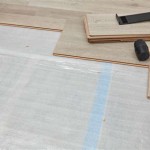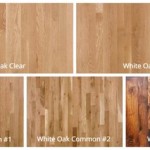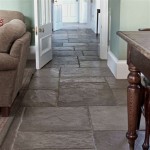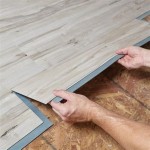Hardwood Flooring Thickness Chart: A Guide to Choosing the Right Thickness
Hardwood flooring is a timeless and elegant choice for homes, offering durability, beauty, and value. When considering hardwood flooring, thickness is a crucial factor that affects its performance, longevity, and overall cost. Understanding the different thickness options and their implications can help you make an informed decision for your specific needs and budget.
Understanding Hardwood Flooring Thickness
The thickness of hardwood flooring refers to the overall depth of the wood plank. It is measured in millimeters (mm) or inches (in). The thickness is a significant factor in determining the stability, durability, and refinishing potential of the flooring.
Generally, hardwood flooring falls into three primary thickness categories:
- Thin Flooring (3/16" - 1/4"): These are usually engineered wood floors with a thin veneer of hardwood over a plywood core. They offer a cost-effective option, but they are less durable and can only be refinished a limited number of times.
- Standard Flooring (3/8" - 1/2"): This is the most common thickness for solid hardwood floors. They offer a good balance of durability, refinishing potential, and cost.
- Thick Flooring (5/8" - 3/4"): These are typically solid hardwood floors known for their exceptional durability and longevity. They can be refinished multiple times, making them ideal for high-traffic areas.
Hardwood Flooring Thickness Chart
The following chart provides a comprehensive overview of common hardwood flooring thicknesses and their associated characteristics:
| Thickness | Type | Characteristics | Applications | Refinishing Potential | |---|---|---|---|---| | 3/16" | Engineered | Thin, cost-effective, less durable | Light traffic areas, over existing flooring | Limited, typically 1-2 times | | 1/4" | Engineered | Slightly thicker, more durable than 3/16" | Light to moderate traffic areas, over subfloors | Limited, typically 1-2 times | | 3/8" | Solid | Durable, versatile, can be refinished | Moderate to heavy traffic areas, new construction | Moderate, typically 2-3 times | | 1/2" | Solid | Very durable, can be refinished multiple times | High traffic areas, new construction | High, typically 3-4 times | | 5/8" | Solid | Exceptional durability, ideal for high-traffic areas | High traffic areas, new construction | High, typically 4-5 times | | 3/4" | Solid | The thickest option, extremely durable, provides soundproofing | High traffic areas, new construction | Very high, typically 5+ times |Factors to Consider When Choosing Hardwood Flooring Thickness
When selecting the appropriate hardwood flooring thickness, several factors need careful consideration:
- Location and Traffic: High-traffic areas like entryways, kitchens, and living rooms require thicker, more durable flooring. Lower traffic areas like bedrooms and guest rooms can accommodate thinner options.
- Existing Subfloor: Ensure the thickness of the hardwood flooring you choose is compatible with your subfloor. If your subfloor is uneven or in poor condition, you might need a thicker flooring option to provide a level and stable surface.
- Installation Method: The installation method, whether nailing or gluing, can also influence the thickness of the hardwood flooring. Refer to the manufacturer's guidelines and consult with a professional installer for proper recommendations.
- Refinishing Potential: Consider how many times you would like to refinish the hardwood floor in the future. Thicker floors provide more refinishing potential, extending the lifespan of your flooring.
- Budget: Thicker flooring generally costs more than thinner options. Balance your budget with your desired durability, refinishing potential, and aesthetic preferences.
By understanding the different hardwood flooring thicknesses and their characteristics, you can make a well-informed decision that aligns with your specific needs, preferences, and project goals.

Hardwood Flooring Guide Tesoro Woods

Engineered Wood Flooring Size Guide Bvg

Types Of Floors Wood Installation Refinishing Staircases Doors And Custom Designs

What Size Does Wood Flooring Come In And Beyond Blog

Wear Layers On Engineered Flooring

How Thick Is Hardwood Flooring A Thickness Guide Reallyfloors America S Est

5 Proven Hardwood Flooring Thickness Categories Easiklip Floors

What Size Does Wood Flooring Come In And Beyond Blog

How Much Will Adhesive Raise The Floor Height Flooring Forum Diy Professional

The Ultimate Guide To Laminate Flooring Thickness Surya
Related Posts








